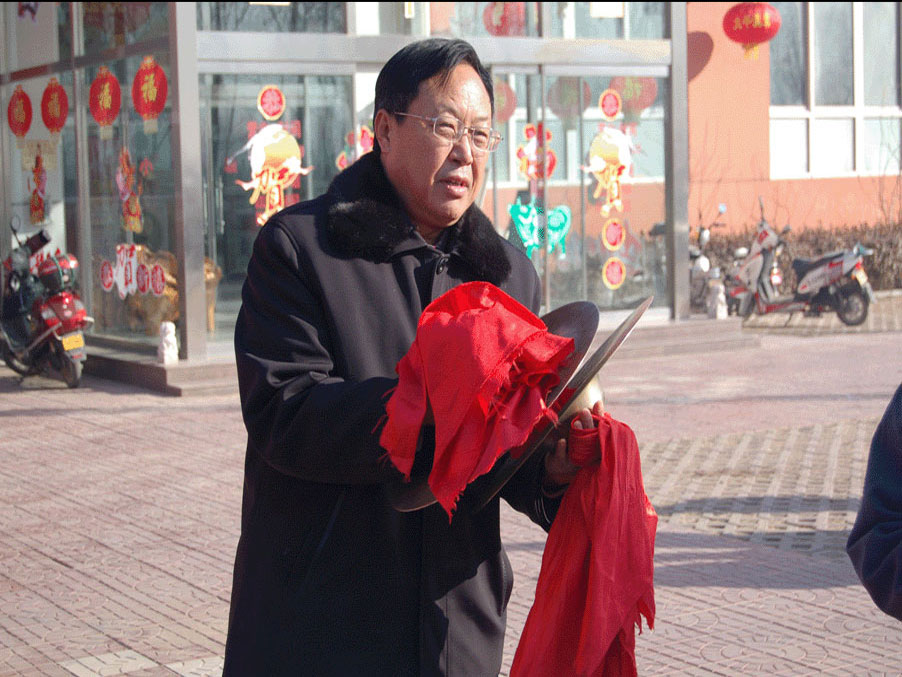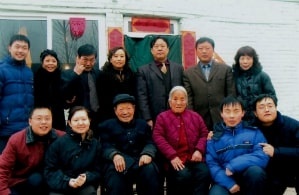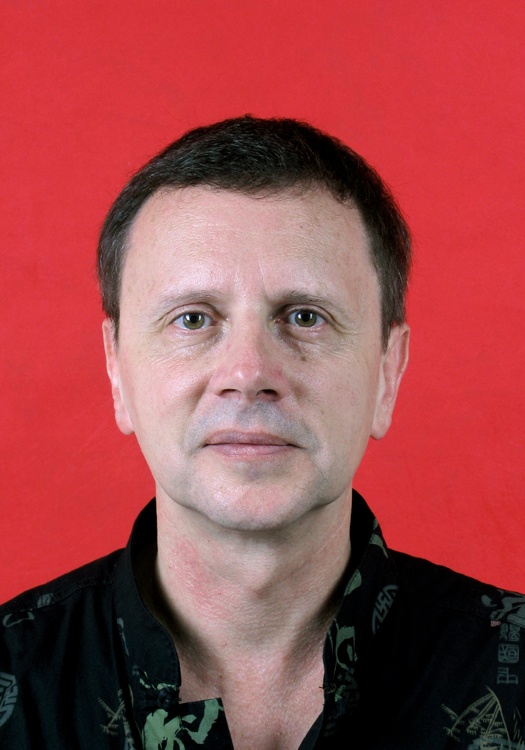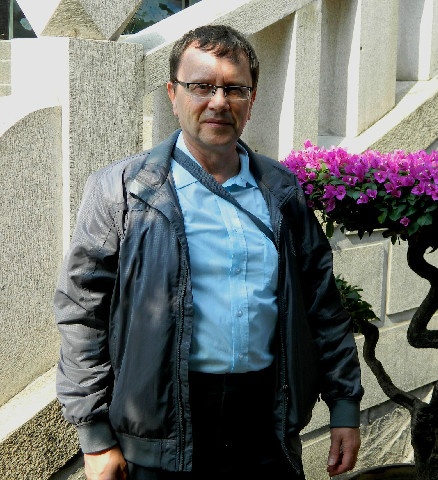
SUN Dawu 孙大午 "Li Chun Festival"
The Old and New Years
It is the New Year. In the west, the tradition of celebrating January 1st began in 153 BCE in the Roman Empire. The date was further solidified under the Julian calendar.
However, one of my Old Years on a civilizational basis was marked by the heliacal rising of Sirius. It took place between July 21 to July 22 some 5000 years ago around 2686 BCE at the start of the Old Kingdom of Egypt. Another one of my Old Years was celebrated at Banpo Village (c. 5000-3000 BCE) in the Yellow River Basin. While an exact date is uncertain, it was probably based on the lunar calendar at the time of the planting season in early Spring.

The Sun Family
2007年,孙大午(后排右三)及夫人刘会茹(后排右四)、孙二午(后排左三)及夫人儿子孙文(后排左一)孙志华(后排右二)及夫人儿子孙佳佳(前排右二)、儿子孙萌(前排左一)及夫人、父母(前排中间)二儿子孙硕(前排右一)合照
To look forward, on a Chinese civilizational timeline, my New Year begins this year on February 17th; as the "Fire Horse" is based on the Lunar calendar. This is when festivities are celebrated and the focus put on the family. However, on a village basis, I celebrate the beginning of the year at "Li Chun". It begins on February 4th in Dawu Village, Hebei Province. The festival is based on the Sun calendar. It is the beginning of Spring and the start of the planting season in China.
To reiterate through summary, I have two Old Years. Based on Egyptian civilization, I celebrate the inundation of the Nile which brings rich silt as a harbinger to the planting season. At the village level, I celebrate Spring planting at a Neolithic settlement on the Yellow River which relies on phases of the Moon. However, on a forward-looking, civilizational basis, 1.4 billion Chinese celebrate February 17th on a lunar calendar which emphasizes festivities and family. On a village level, my new year begins its celebration with Sun at the time of "Li Chun" along with the Sun national, tribe at Dawu Village, Hebei Province. Li Chun marks the start of the planting season based on the the solar calendar of the Sun.
To reiterate through summary, I have two Old Years. Based on Egyptian civilization, I celebrate the inundation of the Nile which brings rich silt as a harbinger to the planting season. At the village level, I celebrate Spring planting at a Neolithic settlement on the Yellow River which relies on phases of the Moon. However, on a forward-looking, civilizational basis, 1.4 billion Chinese celebrate February 17th on a lunar calendar which emphasizes festivities and family. On a village level, my new year begins its celebration with Sun at the time of "Li Chun" along with the Sun national, tribe at Dawu Village, Hebei Province. Li Chun marks the start of the planting season based on the the solar calendar of the Sun.

D.
I would like to thank whomever my Chinese counterpart is for their "Message" to me vis-a-vis both a private and public forum. The message is a very clever pun or "double entendre" rendered in Chinese as 双关语 "shuāng guān yǔ". It can be taken in either a complimentary fashion or an uncomplimentary way. I am both amused and bemused.
In this particular case, it is not the Medium that is the Message (as the Canadian philosopher Marshall McLuhan) has said. Rather, the Message is the Message. It is quite a literal representation in that it defines something by itself. With respect to definition, this breaks one of the cardinal rules of English and Chinese. However, it is forgiven as a pun if it were voiced by a comedian. This particular message though must have been designed or authorized by a higher authority.
The Message is 消息. In this case, 消息 literally means "message" (xiāoxi). However, there is an underlying "message" to the "Message" which is of equal if not more importance. 消息 may be translated as "little nothing". The little nothing replaces the letter "D." which is an abbreviation of my given name "Dennis".
Of course, one could make a reply to the pun "消息" by responding with the homophonous phrase that sounds similar. It would be 小细 (xiǎo xì),which translates to "small details." or of "little importance". Since Latin was my first foreign language I could follow up by saying "reductio ad absurdum".
Dashen (大山) which translates as "Big Mountain" was a popular Canadian performer of xiangsheng (相声). This is a traditional form of Chinese comedic dialogue in Mandarin that relies heavily on wordplay, puns, and cultural commentary. He was recognized as an unofficial cultural ambassador for Canada in China.
On closer examination by a non-comedian, the pun "消息"or double entendre "双关语" looses some of its lustre. It is probably intended to convey a specific meaning according to the contexts within which it is delivered and found. However, there appear to be, in general, fifteen separate meanings in English. For example, "Little Nothing" can mean "a trivial detail" or "minor information". Doesn't this definition deflate the balloon of the humour. Perhaps the author is more familiar with Chinese than the subtleties of English. Yet, Chinese, is understood through context. A two character message in Chinese provides no context.
My full name is "Dennis Carlton Rossi". It is found on my passports with their many entries into China, Hong Kong and Taiwan. However, I prefer to be called "Carlton" by my friends. As "Poe-Phi" (untranslatable), my preference is therefore to use the appellation "D. Carlton Rossi".
To make it more clear, the initial "D." has been substituted by an unknown Party. "D." has become "消息" which means both "Message" and "Little Nothing". Therefore "D. Carlton Rossi" has been corruptly translated into Chinese as "消息· 丹尼斯 羅西·丹尼斯". This action exhibits disrespect and results in loss of face for both parties.
Anyway, it may seem strange to the reader that, in a special way, I view the name "消息" as rather complimentary as opposed to derogatory. It is a compliment (赞美) because Chinese authorities are apparently, for the first-time, officially recognizing my presence and existence in Canada.
They present a "complementarity" 互补性 (hù bǔ xìng) to me. It must reference the wave-particle duality of light from the Sun. For example, when two light waves overlap, they can reinforce (constructive interference). The opposite may take place, however, if they diminish each other. (destructive interference).
There is also a duality concerning the Chinese phrase "消息" meaning Message or News. It can mean "Little Nothing" or "Minor Information". This is not a little or minor difference between "message" and "news".
Since "Little Nothing" replaces "D." it can be interpreted to be personal. Generally speaking, it means a diminishment or disparagement. However, Poe-Phi is an optimist. He believes the cup is half-full of air matching a half cup of water---it is viewed positively. The elements are balanced. Therefore, I embrace "Little Nothing" as an "eponym" 名词 (míng cí). Complementarily, a major "Message" is balanced with "trivial or minor information".
The Chinese through compliment "赞美" have managed complementarily to include "Little Nothing" in the pantheon of a rather exclusive elite; although, I'd rather be a free peasant of the land. The Chinese nicknamed George Bush Sr. and Jr. as Big Bush and Little Bush. They nicknamed Pierre Elliott Trudeau and Justin Trudeau as Big Potato and Little Potato. Well, I have been given the name "Little Nothing".
Understand one thing. These are not terms of endearment, but disparagement. They are dismissive and derisive. They reduce the Bushes and Trudeaus to lowly objects. In Poe-Phi's case, they reduce him to non-existence.
Tut-Tut, this reminds me a lot of the treatment of Pharaoh Akhenaten of the 18th Dynasty of Egypt. He was the pharaoh who switched from polytheism to quasi-monotheism with emphasis on the Sun. As a result, his monuments were dismantled and hidden, his statues were destroyed and his name excluded from the list of rulers compiled by later pharaohs. He was confined to non-existence not only in the earthly but also in the heavenly realm.
With respect to the exclusive elite, "Little Nothing" is a unique case. The word "Nothing" signifies non-existence. It means the absence of anything. Nothing is an abstract concept as it does not refer to a tangible object like a bush or potato of the land nor a peasant of the land.
Therefore, the word "nothing" should not be preceeded by an adjective. It is fine to put the adjective after the word as in "nothing special". It can also be part of a compound adjective like "all-or nothing". As well, it can be used as an"indefinite pronoun". If it refers to the letter "D." or abbreviation of someone specifically like myself then it is a "definite pronoun"; so, it is a grammatical error. In a grammatical sense, it is similar to the word "unique" which should never be preceeded by an adjective. It is in a class of its own so never write "most unique" or "very unique". As you can see, one can take the teacher out of the classroom, but not the class out of the teacher.
Of course, the dialectical materialism of Chinese Communism has an answer (although you may not wish to hear it). Communist ideology, particularly from a materialist standpoint, views death as the end of consciousness and physical existence. Therefore, one could interpret this as the body returning to a state of "nothingness." It means everyone becomes nothing. Now, one doesn't feel so alone in uniqueness.
The term "Little Nothing" is very appropriate for me. I welcome it. As a Buddhist, I don't have an exaggerated sense of my own importance. With an interest in astronomy, I'm aware of the Void which might be interpreted as nothing; although, in this case, nothing means something profoundly else entirely. Finally, I wrote a poem in Chinese called "無" meaning nothing. The character "無" is traditional Chinese. I perceive in it the "Wuxing" or five elements (Wood, Fire, Earth, Metal and Water) Therefore, to replace it with the character "息" is another corruption.
The use of the phrase "Little Nothing" though begs a question. Who on earth is "Big Nothing" or "大息". He must be well hidden. Undoubtedly, he must have come from Utopia or "no place" which is a "good place" under the Sun. He is still hidden. Maybe he has been thrown into Dystopia or a "bad place" where there is no Sun because we haven't heard from him. It is a place of great suffering and injustice.
The term "utopia" is derived from the Greek words "ou" (not) and "topos" (place), meaning "no place". It was coined by Thomas More in 1516. The name is also a pun on "eutopia" which combines the Greek words "eu" (good) and "topos" (place), meaning "good place". The double meaning reflects the idea of a perfect society that is desirable but ultimately impossible to exist. Because of his views, More was sentenced to non-existence or nothingness.
Of course, when I informally became "D. Carlton Rossi" in China, there were many prior considerations---especially considering translation of my name. One of the simplest but most complex considerations involved the letter "D." because I had to consider the Chinese equivalent. It might have been better to just leave it as the capital letter "D." in English, but then it would be very foreign to the Chinese.
My father's side of the family came from Ancona, Italy which was a cosmopolitan colony founded by the Dorian Greek city-state of Syracuse, island of Sicily, which was itself founded by the Dorian Greek city-state on the mainland called Corinth. In short, I might have some Greek blood.
I wouldn't mind if the letter "D." were linked to wine and fertility in Greek mythology, but it is done so through the god Dionysius. The first two letters or "Di" of the English spelling of the word "Dionysius" happen to be pronounced as the uppercase letter "D.". This is one reason I didn't want to use it. Another one is that my middle name "Carlton" means "free peasants of the land". Personally, I find "wine and fertility" compatible with "free peasants of the land". The Chinese would not be aware of these archane associations, but I would and so I didn't use it.
I also didn't want the Chinese translation to be directly associated with the ancient god "帝" or "Di". I have too much respect for the religions of Buddhism, Confucianism and Daoism. These religions often refer to "帝"; although, over time, its emphasis seems to be receding on the mainland with the exception of Hong Kong, Macau and Taiwan.
In the distant past, Di "帝" may have been the ancestral deity or manifestation of all royal ancestors at the time of the Shang Dynasty. The Shang rulers designated as "王"(Wáng) established the legitimacy of their rule through the belief that they were the sole link between Di and the human world. They did this through ancestor worship and divination. Their religion involved rituals of animal and human sacrifices.
By the time of the Zhou dynasty, the primary emphasis was on Tian (Heaven). Tian was a more abstract, universal and moralistic cosmic power. It was not tied to a specific clan. The Zhou established the "Mandate of Heaven" (Tianming). This concept asserted that Heaven bestowed the right to rule on the most virtuous and benevolent ruler regardless of lineage. The Zhou largely abandoned human sacrifice replacing it with ritual code as well as substituting humans with figurines in burials.
These contrasts explain why I identify with Tian and Tianming or Heaven and Mandate of Heaven of the Zhou Dynasty.The Zhou Dynasty was the longest in Chinese history at 790 years; so, it must have done something right. Second, the concept of the Mandate of Heaven lasted for millenia; so, it must have resonated strongly with the Chinese people across different social strata. The Mandate did not require the ruler to be of noble birth. In fact, peasants such as Liu Ban (founder of the Han Dynasty) and Zhu Yuanzhang (founder of the Ming Dynasty) gained the Mandate. Finally, Confucius advocated for a return to the early Zhou model of rites and music which included ancestor worship. Confucius also emphasized filial piety "孝" ("xiào) or respect for family. In short, he believed the early Zhou system represented a golden age of moral order and proper ritual conduct.
Perhaps the reader would like to hear a little more about nothing. I didn't want the letter "D." to be solely linked to the Greek god Dionysius without balancing it with the name of Apollo who was of reason. In the Birth of Tragedy《悲剧的诞生》, Nietzsche "尼采" believed that a healthy culture or civilization required a balance and interplay between the vital "chaos" of Dionysian Rausch and the serenity or calmness of Apollonian Besonnenheit. For my Chinese readers, the equivalent of "Besonnenheit" is 清醒 ("qīng xǐng) which conveys the idea of clarity, sobriety or clear-minded state. Another possible translation emphasizing calmness might be 平静 (píng jìng). These are very poetic expressions in Chinese.
Besonnenheit did not refer to either "order" or "Cosmos". Basically, Nietzsche viewed the universe itself not as inherently ordered (a Cosmos), but as a realm of perpetual flux and chaotic change. For this reason, he admired the pre-Socratic philosopher Heraclitus" who said that "change is the only constant in the universe". Therefore, Nietzsche viewed the Apollonian impulse expressed through Besonnenheit as creating a perceived, structured world or appearance of order to make the underlying chaotic existence bearable.
Nietzsche's exploration is largely focused on Greek tragedy and how these two forces manifest in art and life. He examines how artists like Aeschylus and Sophocles balanced these opposing forces in their works. Aeschylus is often credited with elevating tragedy to an art form. He addressed themes of fate, divine justice, and human suffering, engaging deeply with the Dionysian aspects of life. Sophocles embodies a balance between these forces, integrating the emotional depth of the Dionysian with the clarity and structure of the Apollonian.
In "The Birth of Tragedy," Nietzsche critiques Socratic thought as being overly focused on reason and moral absolutism, leading to a suppression of the deeper, irrational aspects of life. According to Nietzsche, dialectical reasoning and the pursuit of truth through logical discourse neglects the intensity and depth of human experience represented in tragic art. It appears Nietzsche might have a similar criticism of Hegelian dialectic though the contexts and implications may differ.
In summary, Nietzsche uses Socrates as a foil to Aeschylus to illustrate the dangers of prioritizing rational thought over the Dionysian elements of life that are richly expressed in tragedy. This contrast underscores the complexities of human existence and the importance of both chaos and order, emotion and reason, in understanding both art and life itself. Through this lens, Nietzsche critiques the trajectory of Western thought and its implications for culture and art.
Nietzsche balanced the chaotic/ecstatic Dionysian Rausch with the rational, ordered Apollonian Besonnenheit to affirm the underlying reality of existence. Confucius similarly integrated older, more primal beliefs of the Shang which were based on spirits, ancestors and Di with the best philosophical concepts such as (Tian and Tianming) of the Zhou to create a structured yet deeply humanistic social and moral order.
The Shang model could be conceived as having Dionysian elements in its direct and less mediated engagement with a chaotic, spirit filled world where blessings were not tied to universal virtue. The Zhou who overthrew the Shang justified their rule by introducing the concept of Tian (Heaven) and the Mandate of Heaven (Tianming). This was a more abstract and rational concept that shifted the focus from ancestry to a ruler's performance or virtue (de). This emphasis on virtue, order and transcendent moral principle is a "rational" or "Apollonian" counterpoint to the earlier more primitive worship.
In short, Confucius lived in a time of social and political unrest at the end of the Zhou Dynasty. However, he successfully transitioned society from a primal "di" to a sophisticated "de". Poe-Phi internalized this transition from the letter "D." pronounced "Di" to the letters (De) beginning the common name (Dennis).
Confucius formulated an ethical framework centered on 孝 "filial piety" (xiào) and the proper performance of 礼 "rites" (lǐ). In doing so, he put the emphasis on human agency wherein the Mandate of Heaven was tied to individual, moral self-cultivation. One achieved harmony with Tian rather than through ecstatic rausch or supersition. It meant that harmony was achieved through conscious moral action and a respect for social order. This method provided a structured, orderly way (Besonnenheit) to deal with the chaotic reality of death and the primal need for connection. By balancing these elements, Confucius created a social system wherein order (the Apollonian goal of Besonnenheit) was achieved through the acknowledgment and channelling of the deep, emotional, human bonds (the Dionysian life-force of family, community and creativity).
Externally speaking, Poe-Phi searched the historical records for a well-known person with the Chinese equivalent of the common name "Di". Basically, he discovered only one foundational, fictional, semi-mythological figure. In more modern times, there is a fictional streaming character, who as a lawyer, jurist and detective solves numerous criminal cases.
The above mentioned streaming actor was based on the real-life person known as "Di Renjie" (狄仁傑) who lived at the time of the Tang Dynasty. In this particular instance, "Di" is a surname. While the name was fairly popular in the Tang Dynasty it has become less so today as it is rated the 314th most common name on mainland China. This uncommon surname, though, suited Poe-Phi perfectly as an initial for a common name. Furthermore, he admired Di Renjie.
Chancellor Di Renjie served in the Tang and Wu Zhou dynasties. His contributions as a jurist are well-documented particularly in his efforts to reform the legal system. However, his influence extended beyond judicial duties to important political roles within the Tang government. His legacy includes being a crucial figure in the rapid development of early Chinese jurisprudence and statecraft. He is known today as the "Sherlock Holmes of China".
https://en.wikipedia.org/wiki/Di_Renjie
D. Carlton Rossi 狄·卡尔顿·罗西 (Little Nothing)
2025/11/25 2025年11月25日
In "The Birth of Tragedy," Nietzsche critiques Socratic thought as being overly focused on reason and moral absolutism, leading to a suppression of the deeper, irrational aspects of life. According to Nietzsche, dialectical reasoning and the pursuit of truth through logical discourse neglects the intensity and depth of human experience represented in tragic art. It appears Nietzsche might have a similar criticism of Hegelian dialectic though the contexts and implications may differ.
In summary, Nietzsche uses Socrates as a foil to Aeschylus to illustrate the dangers of prioritizing rational thought over the Dionysian elements of life that are richly expressed in tragedy. This contrast underscores the complexities of human existence and the importance of both chaos and order, emotion and reason, in understanding both art and life itself. Through this lens, Nietzsche critiques the trajectory of Western thought and its implications for culture and art.
